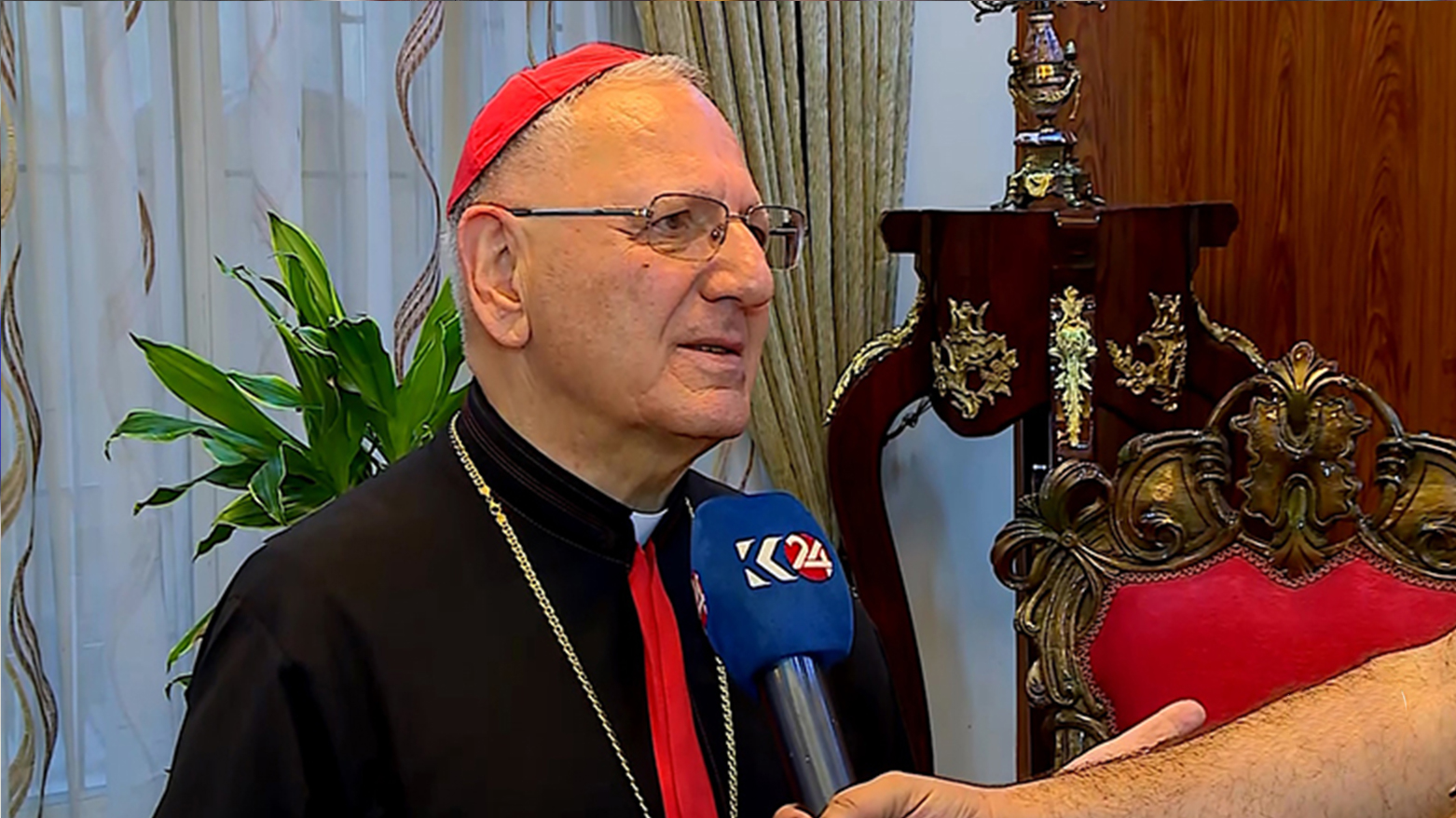Chaldean Patriarch Extends Eid al-Fitr Greetings to all Muslims
"As we celebrate this holiday and approach the elections, I see an urgent necessity to transition to a new phase of thinking and planning, amid growing concerns surrounding the country," said Louis Raphael Sako.

By Ahora Qadi
ERBIL (Kurdistan24) - Cardinal Louis Raphael Sako, Patriarch of the Chaldean Church in Iraq and worldwide, extended his heartfelt greetings to Muslims on the occasion of Eid al-Fitr. In his message, he also voiced concerns about Iraq’s current state, emphasizing the urgent need for a sincere and courageous national dialogue to forge a comprehensive roadmap for the country’s future.
In a statement issued on Sunday, Patriarch Sako conveyed his best wishes to the Muslim community, saying:
"On the occasion of Eid al-Fitr, I extend my sincere congratulations and best wishes to my Muslim brothers and sisters, wishing them health, peace, and prosperity. May Iraq enjoy security and stability."
Reflecting on Iraq’s ongoing challenges, Sako stressed the need for a transformative approach, particularly in light of the upcoming elections.
"As we celebrate this holiday and approach the elections, I see an urgent necessity to transition to a new phase of thinking and planning, amid growing concerns surrounding the country," he said.
Call for a National Dialogue
Highlighting the impact of two decades of sectarianism, power-sharing quotas, hate speech, and corruption, Sako proposed a genuine and bold national dialogue between the current government, political parties, and intellectual elites. He emphasized the need for a unified national program that prioritizes Iraq’s well-being over partisan and foreign interests.
"What we have endured over the past 22 years—sectarianism, cronyism, hate-fueled discourse, conflicts, and corrupt networks—necessitates a sincere and courageous national dialogue. Such dialogue must bring together the government, political parties, and cultural and national elites to develop a comprehensive plan that places Iraq above all else, establishes a strong and stable state, centralizes arms under its authority, and ensures that the nation’s wealth serves its people rather than external agendas."
The Patriarch underscored that true reform requires a holistic strategy to cement the principles of citizenship, civil governance, and national unity.
"This reform demands a full-fledged plan to reinforce the concept of citizenship, strengthen the foundations of a sovereign civil state, and promote national cohesion, unity, love, and cooperation among all Iraqis. Only then will Iraq thrive under capable leadership, and its citizens take pride in their homeland."
The Chaldean Legacy: A People Rooted in History
The Chaldeans are an ancient Semitic people who emerged in southern Mesopotamia—modern-day Iraq—tracing their origins back to the 10th century BCE. They played a pivotal role in Mesopotamian history, most notably during the rise of the Neo-Babylonian Empire, which reached its peak under King Nebuchadnezzar II (605–562 BCE).
Settling in the marshlands of southern Babylon, the Chaldeans developed a unique linguistic and cultural identity, blending elements of Akkadian and Aramaic into what became known as the Chaldean, Neo-Babylonian, or Syriac language. They practiced a polytheistic faith akin to other Mesopotamian civilizations but later became among the earliest adopters of Christianity. Today, most Chaldeans belong to the Chaldean Catholic Church, an Eastern-rite branch of Catholicism that shares core beliefs with the broader Catholic tradition.
